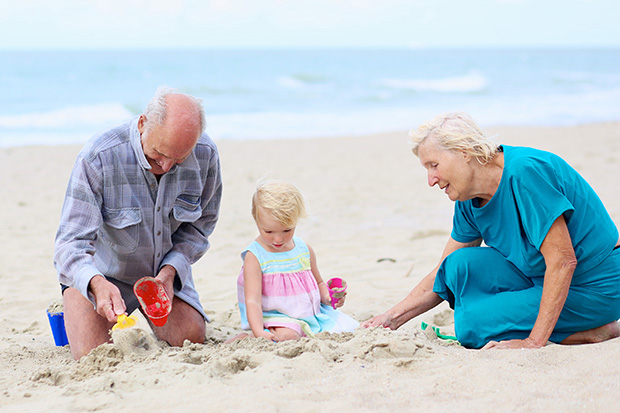
By Monte Schwartz, Transition Specialist, LivWell Seniors, LLC
So says the guy who apparently never traveled anywhere with kids always wondering if we’re “almost there yet!” Arriving in those cases can actually be pretty nice.
Okay. I couldn’t resist. But in truth, as so many do, I admire Einstein and appreciate his many insights. We do know in life how important the actual journey itself is. Even on those longish family vacations, we have made countless memories and have experienced many moments of joy during the traveling itself.
That doesn’t mean it is always easy. Traveling can be, and often is, quite a hassle. That’s true under the best of circumstances, and all the more so when things get a bit more challenging.
We have worked with many families who at some point have struggled with whether or not to take an elderly loved one who may not be up for the rigors of travel on a trip. Adding to the complexity of the decision is the fact that it is usually made by the caregiver — someone who is often already overwhelmed by feelings of stress and guilt, not to mention dealing with the pressure of trying to please all of the well-meaning people giving her advice.
I remember working with a woman who wanted to travel out west to attend a wedding, but wasn’t sure if she should go without her husband, take him, or skip the trip altogether. Ultimately, she decided to go and felt that it was best for all involved, most especially her husband, if he didn’t. While gone, she made sure that he was cared for by taking him to a senior living community for a respite stay. It wasn’t an easy decision or one that she took lightly, but in the end, she was happy with it and believed it to be the right one (she also had a great time and a well-deserved vacation).
Of course, there are many times when the family does feel that it is apropriate to travel with an elderly loved one. In those cases, just plan accordingly. A good place to start is probably with their doctor for specific travel tips and recommendations based on their particular situation (including a likely reminder to pack medications). Families with experience in this area also suggest allowing for plenty of downtime and not making the schedule too hectic. Finally, provide as much familiarity and routine as possible. This could include, insofar as possible, eating and going to bed at times that they normally would at home. Also, consider bringing a comforting item from home, such as a favorite pillow. This is obviously not an exhaustive list and a lot will depend on your mode of travel. For example, check with the TSA website if you plan on flying.
Though requiring some extra effort, traveling with an elderly loved one might yield some unexpected surprises. After a college recital earlier this spring, while people were visiting and milling around, the grandmother of one of the students got on stage, helped herself to the piano, and started playing! The student sheepishly explained that her grandmother (who traveled with the family some three hours to attend the event) didn’t really know what she was doing because she has dementia. Regardless, Grandma still received an ovation for her impromptu performance from those still in attendance (I hear she was actually quite good)!
As with anything, when it comes to family and caring for an elderly loved one, there is not an easy, one-size-fits-all solution. You know your family better than anyone else. If traveling is an option in your situation, just take the necessary steps to try to ensure everyone’s safety and well-being. If that is not an option, take advantage of care options for you loved one while you are away — and allow yourself to enjoy the trip without feeling guilty for doing so.
LivWell Seniors serves as a local agency providing community-based resources that are 100-percent free to seniors and their families. They are funded by the senior care providers that utilize their service and network of connections. For further information, contact us at 563-265-1553, or visit our website at www.livwellseniors.com.

